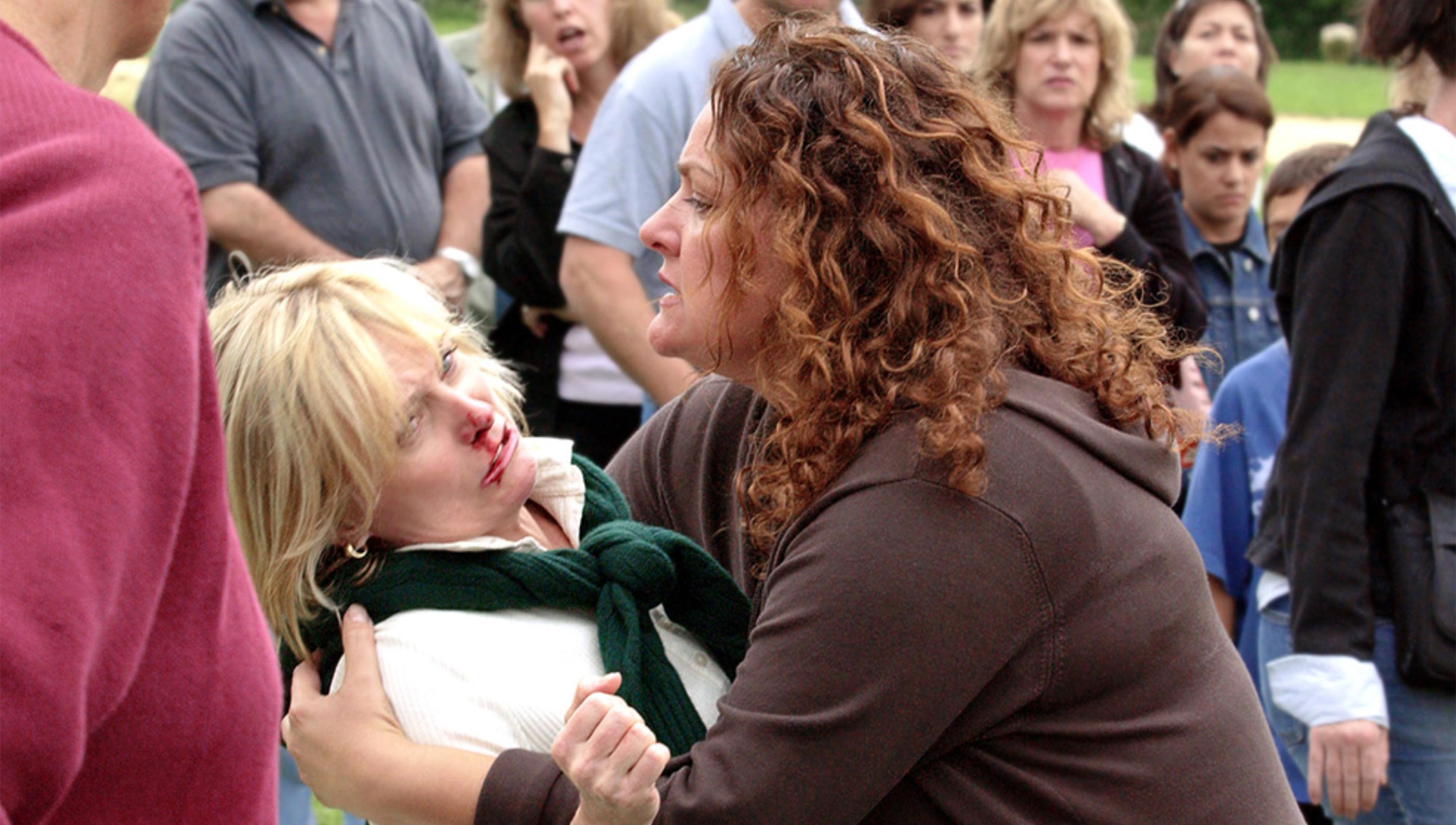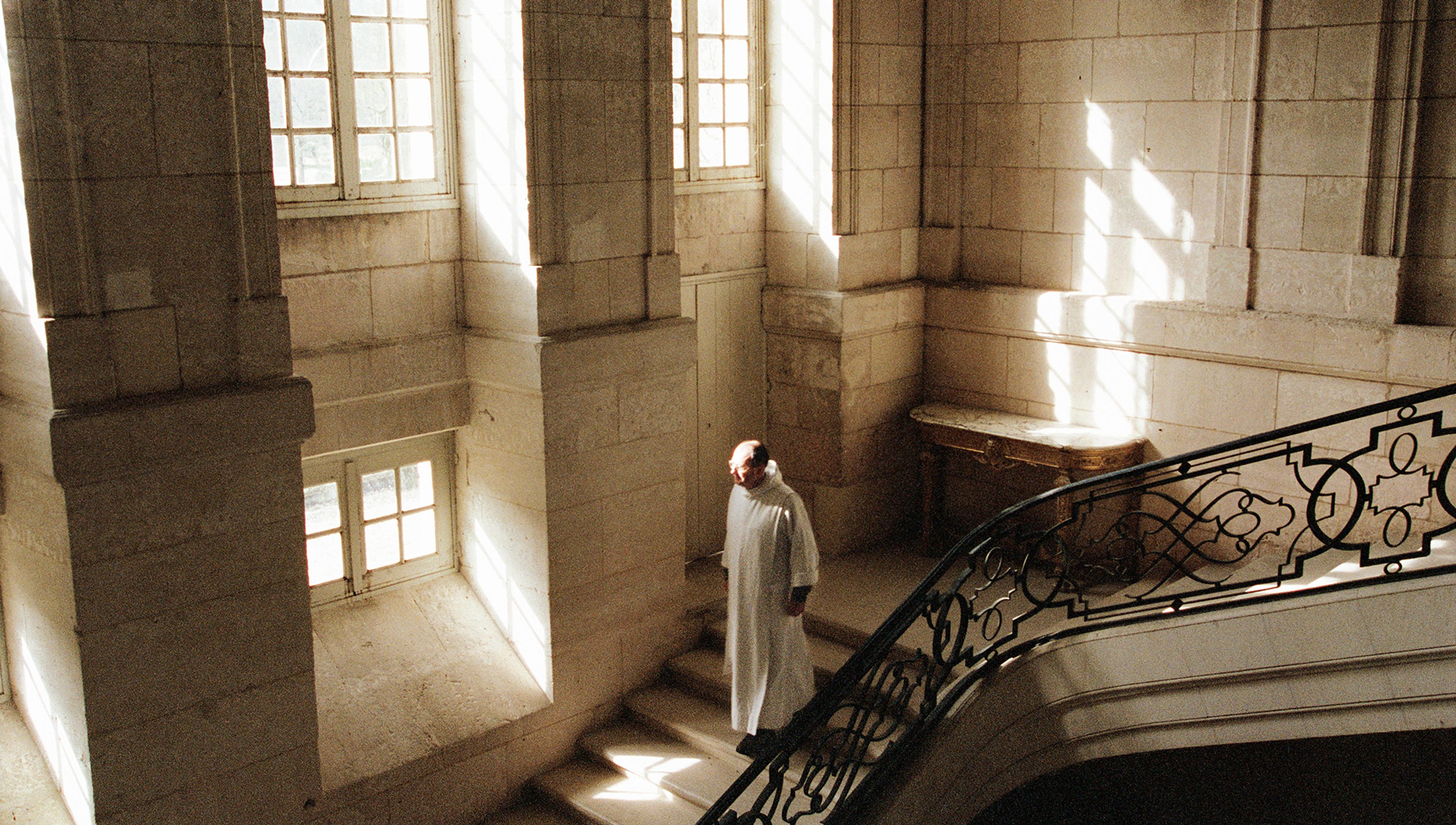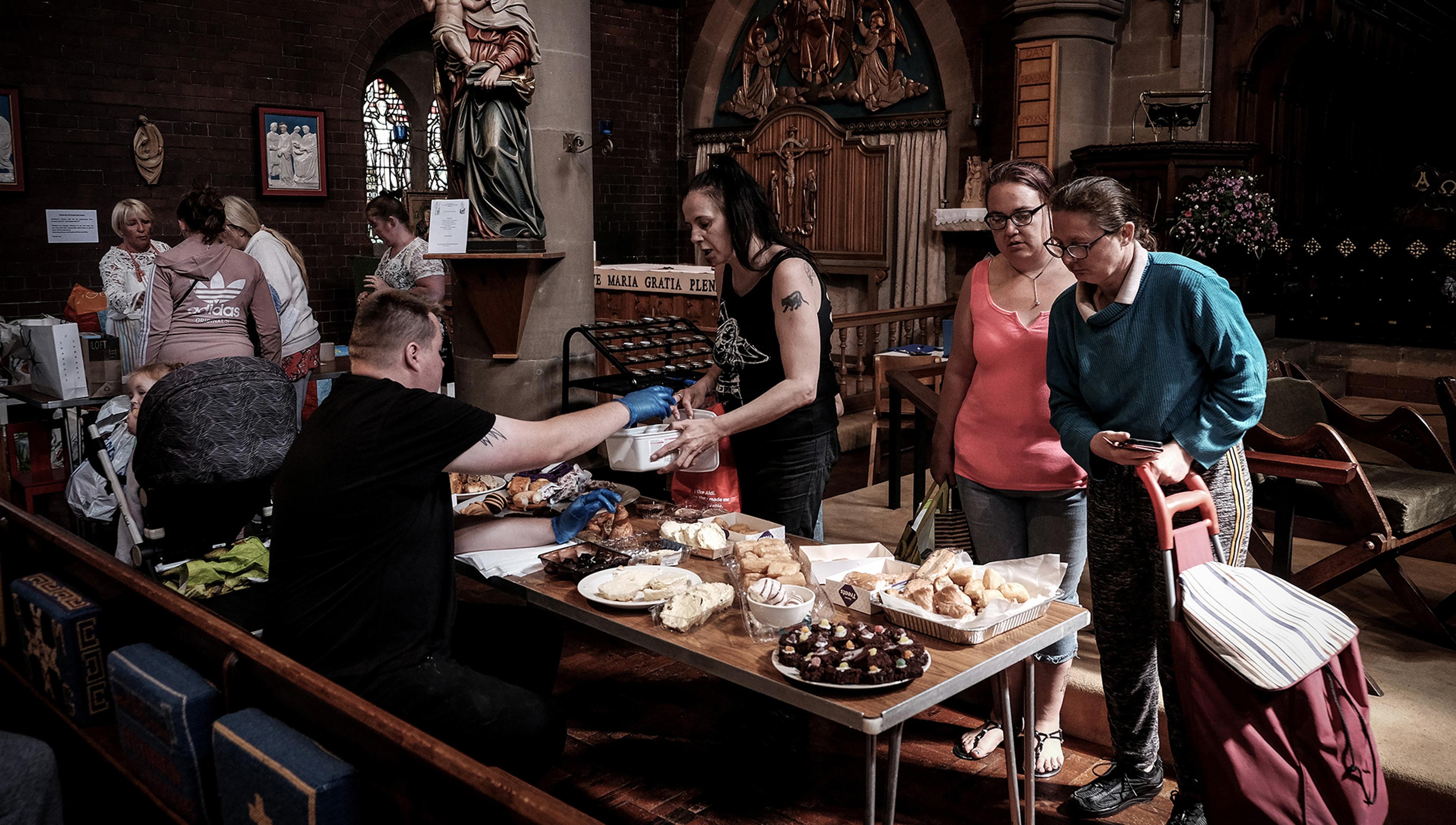No talking about children, and a serious love of reading: what it takes to run a book club for more than half a century
In 1964, a young mother called Charm had an idea. What if there was a time and space she could meet with other women and not talk about the children? Don’t get her wrong, talking about her children was important to her – just not all the time.
This was the beginning of a book club in Perth, Western Australia, that I’ve been attending for the past 25 years. At 84, I am one of the younger members. The original group of six made surprisingly detailed rules that remain virtually unchanged. Monthly meetings would be in members’ homes, starting at 8pm with a glass of sherry, wine or fruit juice, and concluding with tea, coffee and sandwiches. Discussion would proceed like a university tutorial: working through the prepared questions and led by the chooser of the book. There would be no irrelevant talk of children or family matters. The hostess would hand out the book for the following month, along with a set of questions, and be repaid the cost.
The time was set so young children would be in bed and easily minded by their fathers. Like most book clubs, even today, it was for women only. The rule about refreshments aimed to prevent any escalation of competitive cooking – always likely to happen in women’s groups. The main goal was to ensure that the focus was always on the quality of the books, the love of reading and the thoughtful discussion. In a whimsical touch, Booke Club was the name chosen.
Within a few months, Booke Club had 10 members, four of whom stayed right through to 2019. Ten was always considered optimum, allowing for a dinner in December and a break in January. If fewer than 10, a film was scheduled for one month’s discussion.
What were these women like in 1964? I know because I could have been one of them. In 1964, I was 28, a BA graduate, and the mother of three (soon to be four) young children. Only the fates of how lives converge or miss each other had me in another, but quite similar, Perth book club. That one faded out once our children were all at school and we went back to work or study.
Booke Club members were well educated – most at tertiary level – which explains their familiarity with the tutorial format. But they didn’t work seriously outside the home. Many of them had been employed by the state government and were made redundant the moment they married. They were extremely likely to – and did – soon become pregnant, since birth control was limited and formal childcare nonexistent.
Our lifestyles were reasonably frugal and simple compared with recent generations. Actually, no one used the word ‘lifestyle’ and generations didn’t have names. We were more independent and better educated than most of our mothers but, at this stage, our lives weren’t very different. Among the earliest members, there were only two divorces, and one husband died young. The other marriages lasted until some deaths in recent years.
Membership fluctuated as some moved from Perth’s inner suburbs. A few travelled overseas, and on return were welcomed back to Booke Club. New members came in through at least one link with a current member. It was considered important that the group discuss a prospective member before she was asked, and that the person acting as the ‘link’ person would prepare the new arrival for the expectations of membership. Joining Booke Club was not to be entered into lightly!
The original rule of forbidding personal discussion made Booke Club an oasis, or time-out – both refreshing and therapeutic
Over 55 years, 34 women have been members of the Booke Club, very few for under five years, and most for decades. Charm retired at the end of 2019. Considering the significant changes and important life-events we must have all experienced during our membership, it might be thought that such a group would provide much sharing and emotional support. Interestingly, Booke Club hasn’t really been like that. One member recently semi-joked that she didn’t know about a divorce and remarriage until it was over.
I think that adherence to the original rule of forbidding personal discussion made Booke Club an oasis, or time-out – both refreshing and therapeutic. Whatever concerns or worries one might have, Booke Club remained comfortingly the same.
I have before me the oldest surviving record from Booke Club – a tattered paper-covered exercise book, with neatly ruled columns, covering 1973 to 1984. For this we can largely thank Charm, whose leadership and love of numbers (she had a maths degree) gave her the job of ‘treasurer’, soon joined by June. As well as names and cost of books, there are conscientious details about payments, amounts owing, and ‘balance in hand’.
More than 500 books have been pored over in the Booke Club’s life. Fay, a member since the third meeting, has done a huge amount of work to maintain a list of everything we read since 1965, and has continued to provide yearly updates.
The range is impressive. The first book was Cider with Rosie (1959) by Laurie Lee, a classic chronicle of English village life after the First World War; the last in 2019 was Too Much Lip (2018) by Melissa Lucashenko, an Australian Indigenous writer. ‘The books chosen are mostly prose fiction but we have also had poetry, drama, biographies, sociology, travel, history, education, psychology, and even politics,’ wrote Connie, an original member, in her article about us.
The aim was always to keep up to date, as well as revisit or get to know the classics. So we see authors such as Thomas Hardy, Jane Austen, Virginia Woolf, Simone de Beauvoir and Henrik Ibsen sprinkled throughout the lists alongside the enduring modern writers Patrick White, Thomas Keneally, Shirley Hazzard, Isabel Allende and Margaret Atwood – as well as topical bestsellers such as Sebastian Barry, Lionel Shriver and Pat Barker.
While Booke Club members have generally been unwilling to vote on ‘favourites’– I think this was considered rather frivolous – we have done so twice. At the date of the most recent vote, in 2015, the 10 members voted on their top five books from the past 36: Cutting for Stone (2009) by Abraham Verghese (five votes), The Rosie Project (2013) by Graeme Simsion (four votes), and Burial Rites (2013) by Hannah Kent, The Hare with Amber Eyes (2010) by Edmund de Waal, and Room (2010) by Emma Donoghue (all with three votes). Despite experiencing a wide variety of genres and styles, it seems that Booke Club members still valued quality fiction the most.
The nature of discussion questions ranged from the straightforward to the complex. Noel, who joined in 1972, wrote this introduction to Cutting for Stone:
I came across this book by chance (garage sale) and enjoyed it immensely. I must confess that initially I paid little attention to the fact that it was set in Ethiopia. However, after visiting Addis Ababa I returned to it and read the history avidly and appreciated the details of the geographical setting as both explained to some extent what I had experienced while there.
Sometimes a more extensive attachment was provided. June, who had lived in Japan, shared a picture and information about netsuke, the miniature sculptures featured in The Hare with Amber Eyes. David Malouf’s Ransom (2009) and Pat Barker’s The Silence of the Girls (2018) were each accompanied by a short document about the Trojan War.
A few questions encouraged us to share relevant experiences or feelings. This is one of mine for The President’s Hat (2012) by Antoine Laurain:
Have you ever had an item of clothing that made you feel different? What was it and how did you feel?
Sometimes the questioner selected a short passage for us to study or read aloud, or asked us to choose one we thought humorous, well-written or memorable. Many questions asked about the quality of the writing, as well as literary aspects such as plot, structure and voice. Of course, there was always the opportunity to discuss the characters – their depiction, motivation, realism, relationships, and how we loved or hated them.
I don’t think anyone ever came without reading the book from beginning to end, at least once
While preparing this account, I talked individually with the other nine members about what Booke Club has meant to them and why they thought it had been so long-lasting. The word they used most frequently was ‘serious’. Those young mothers in 1964 needed a chance to exercise different parts of their brains, to take mental challenges, and to share their thoughts with others. They found that the study and discussion of good writing was a way to meet these needs. Gradually, their lives expanded into worlds outside the home – higher degrees, professional and creative work, travel, grandchildren. Much later, their lives began to contract, but Booke Club retained its value throughout.
Members also talked about the importance of the reliable structure – especially the formality of the discussion and respect shown for different opinions. The requirement to come to a meeting well prepared was seen as an opportunity to think deeply beforehand and then get new insights from the discussion. I don’t think anyone ever came without reading the book from beginning to end, at least once. Many members believe that it is because of Booke Club that they still read so widely.
I think the old-fashioned quality of dignity also describes these women, and explains the almost complete absence of squabbles. Unsurprisingly, all members believe that the strong love of literature, willingness to listen and share, and disciplined commitment has kept us going.
Joining a long-established group can be daunting. I remember being quite anxious as I attended my first meeting, wondering whether I was going to be able to say anything ‘good enough’ for this group. And still, I heave a sigh of satisfied relief when I have irrevocably bought my chosen book, printed out my questions, and the discussion is over.
Such constancy and devotion to tradition runs the risk of inflexibility. Change hasn’t come easily to Booke Club. Changing the starting time to 7.30pm required several months’ discussion. The arguments were that we now had no after-dinner chores, and mostly liked going to bed earlier. Eventually it was resolved with a vote. In 2002, the easiest change was to add ‘Vintage’ to our name.
As members retired from their daytime jobs, the change to a daytime meeting was considered. It prevailed in 2017, in light of problems with night-driving and mobility. Decisions were always made democratically, with the respect for differing opinions that had been well practised over years of book discussions. When the starting time of 10am was settled, some thought that refreshments could be more varied. There was a little experimentation with scones and muffins, but somehow we soon reverted to sandwiches.
Recent needs for change have required some sensitivity and gentleness, and members have responded admirably. Ageing means that sight, hearing and memory all decline gradually and, for some, the treasured challenges of choosing a book, researching and preparing questions, even hosting a meeting, were becoming demanding. Previously, members had simply retired with fond farewells when they felt the time was right. Lately we have encouraged anyone to give up whichever expectation they were finding difficult, and to keep attending meetings with transport and any other support arranged. For her last two years before retiring from the club, Charm didn’t choose a book, but read all the choices, and hosted any film discussion meeting. Another founding member, Jenny, now chooses something to read, but doesn’t prepare a set of questions nor host a meeting. The tone of meetings has somewhat relaxed but the formal structure still functions well.
The pandemic of 2020 halted meetings and gave time for reflection. One more member retired. Western Australia currently has a low infection rate, so eight of us have now joyfully reconvened. The only change is simplified refreshments with some members bringing takeaway coffee. I’m sure that if this could have been imagined in 1964 it would have been severely frowned upon! Nonetheless, it shows that, in its 56th year, the Vintage Booke Club is continuing to meet its original goals with an admirable combination of tradition, flexibility and commitment.



